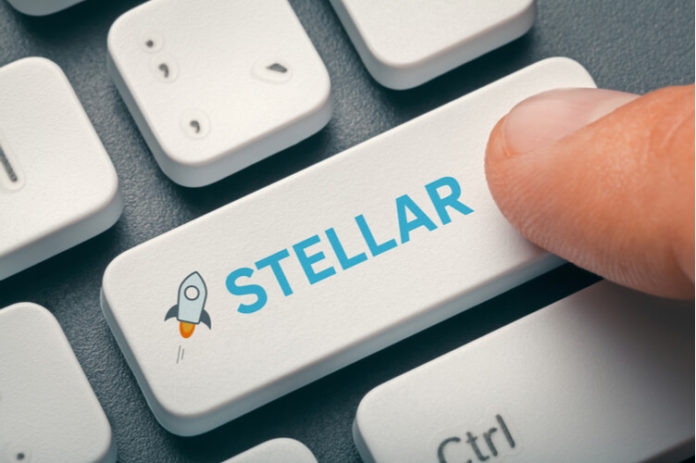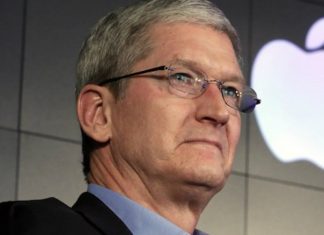Jed McCaleb is a programmer, developer and one of the earliest members of the crypto community. His presence comes in the form of creating and supporting blockchain-based projects such as the non-profit financial system Stellar. Over the last 18 years, Jed McCaleb has changed a few jobs – from developing peer to peer storage system eDonkey in 2000 to creating the first bitcoin exchange Mt. Gox in 2011, it is clear that he is an expert in computing and technology. Time and again, he tweets about marine life, space inventions, supercomputers and most importantly, cyptocurrencies and distributed ledger technology.
Recently, Jed McCaleb spoke with CNBC regarding the future of payments and banking. And as always, the answer pointed in one direction: the common use of blockchain technology. “In the future, I think it’s pretty clear to me there will be a universal payments network,” said McCaleb. Unlike current methods, it will include a public and irreversible ledger that will be visible to everyone online. It would also allow people to “use things they’re used to, like dollars and euros.”
More than a decade ago, people were under the impression that these conditions were impossible to fulfill. However, Satoshi Nakamoto’s invention proved that blockchain technology was in fact a reality. There were many obstacles that founders and developers had to overcome in the last decade, but a few still exist. One of these include getting banks to collaborate with cryptocurrency payment networks. McCaleb’s own company, Stellar, is trying to solve this problem slowly. It is a platform that allows cross-border payments and frees users from the hassle of converting currencies using long procedures and high transaction fees. Stellar has partnered with 37 businesses including multinational companies IBM and Deloitte, and banking services ICICI Bank and Cellulant. Co-founded by McCaleb in 2014, its coin Lumens (XLM) has earned a position in the top 10 cryptocurrencies. In his own words, “Recognizing that the world’s financial infrastructure is broken and that too many people are left without resources, Joyce Kim and I cofounded Stellar Development Foundation.”
Moving on to ICOs, Jed McCaleb said that their “markets [are] not tapped right now by the financial system.” Cryptocurrency is the pioneer in blockchain technology, but so are ICOs. The first ever token sale was recorded in 2013 by Mastercoin, and it raised almost $600,000. The concept of ICOs is simple: you contribute fiat or cryptocurrency in the startup in exchange for its token, which may appreciate in value in the future.
Projects like Ethereum, which not only raised $18.4 million but also provided crypto users with smart contracts, are listed under the most successful ICOs. In fact, Mobius, a project that connects devices to the blockchain ecosystem, chose Stellar to run its ICO and raised around $39 million successfully. But financial regulators fail to officially recognize ICOs because their focus is towards fraudulent groups that use token sales to steal money. Sometimes, these scams become headlines, while other times they require intervention by authorities. For instance, the US Securities and Exchange Commission (SEC) had to step in to solve the problem in PlexCoin’s case. As a result of this, majority of the countries either banned ICOs or allowed their use with strict regulations.
Jed McCaleb also talked about financial instruments such as stocks, bonds and commodities, “In the next 10 years I wouldn’t be surprised if all equity isn’t tokenized on some blockchain somewhere.” His vision is simple: tokenize financial assets, offer them on a blockchain trading platform, and entrust a transparent and secure network to complete the process. Even Deloitte believes that blockchain is the “future of share trading”. The company explains that by adopting this strategy, people will get rid of intermediaries such as brokers. This will cut down extraneous fees and provide customers with many opportunities. McCaleb also added that in the future, the number of stocks (both crypto and non-crypto) will increase and it will be impossible for a central stock exchange to control all the transactions. Thus, blockchain will become the ideal solution.
On the other hand, online exchanges have already started including cryptocurrency assets on the market. Bitcoin futures were launched by Chicago Board Options Exchange (Cboe) and CME Group Inc. in December last year, but such developments were opposed by central banks and regulators. European Central Bank (ECB) called them a threat while the SEC froze cryptocurrency futures trading momentarily. Their concerns have been addressed by Cboe, who recently answered all the questioned mentioned by the SEC.
However, Jed McCaleb admitted that in order to obtain the trust of their customers, crypto projects need the support of banking institutions, “Who the institutions are that are backing these assets is important. You would rather have a Chase Bank dollar than a Mt Gox dollar. It’s the same in the world today: when you use PayPal, you don’t have a dollar – you have a PayPal dollar. How do you know PayPal actually has a dollar? You use institutions that are actually licensed and regulated; that have real bank accounts.” He also said that Stellar allows everyone to use the platform – which is why its focus is not entirely on “big banks”.
Jed McCaleb writes that his personal thoughts mostly involve different ways to improve technologies, so that they can be used to bring a positive change to the world. He also believes that there is a lot of “economic potential” worldwide, however, current financial solutions restrict people from obtaining these benefits.










